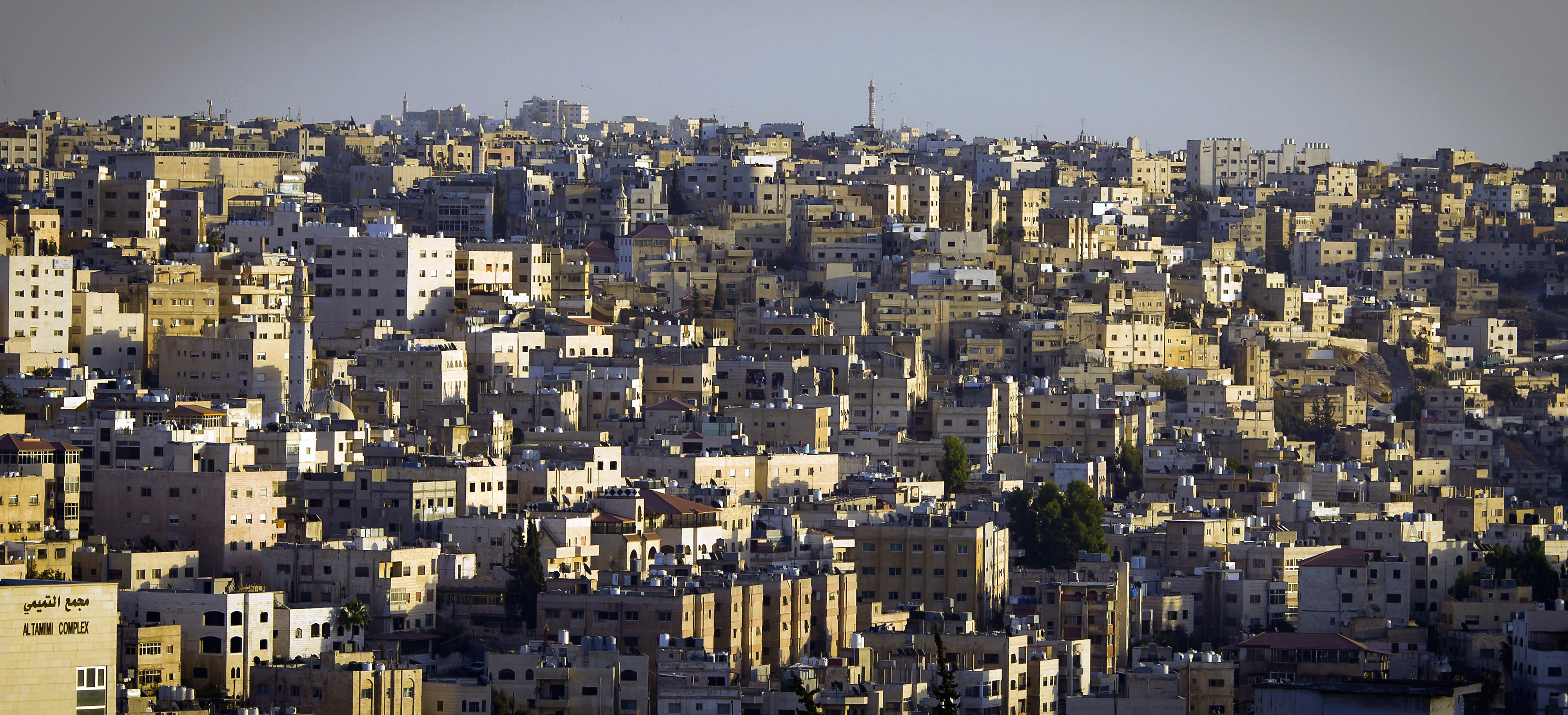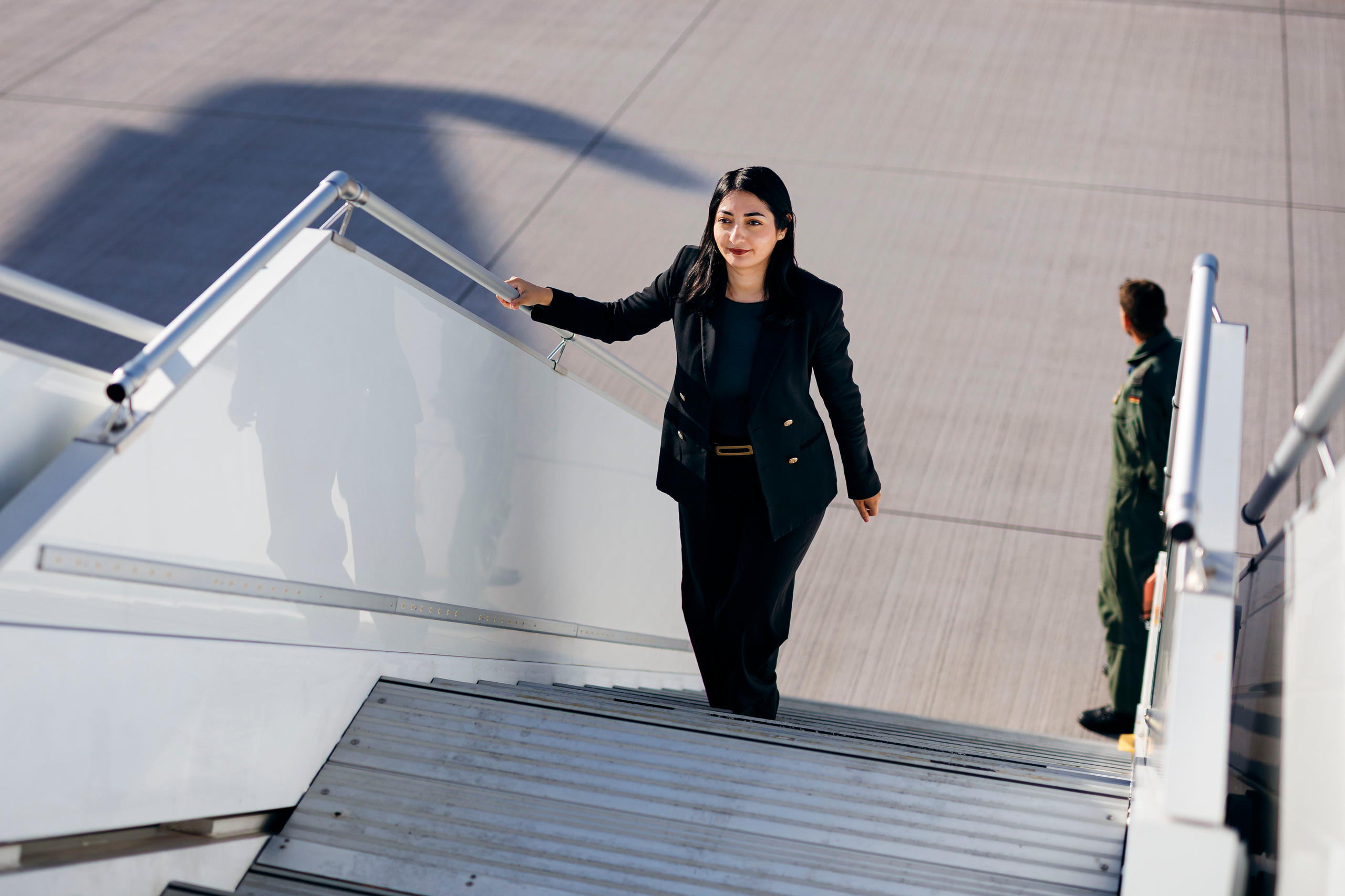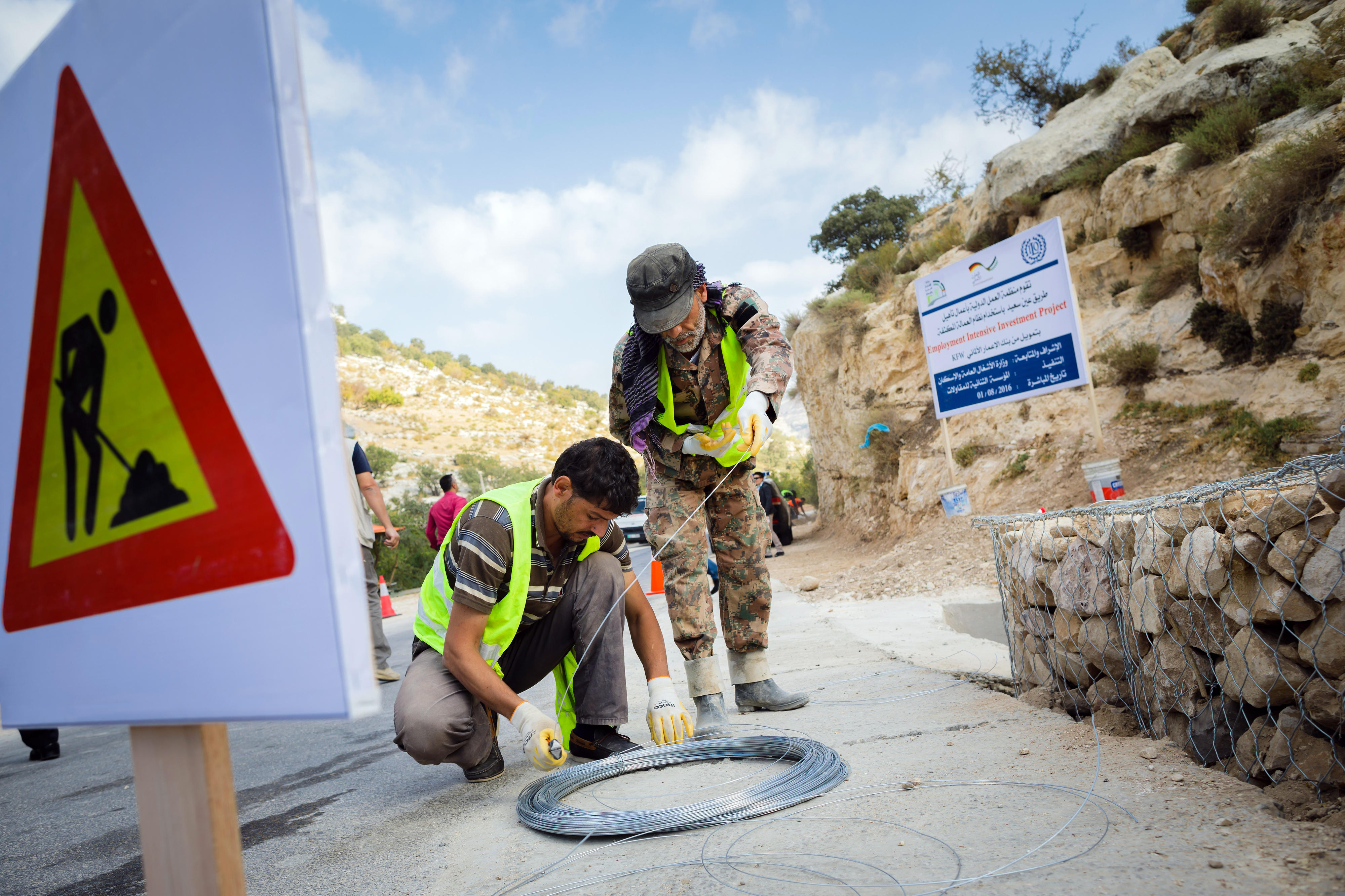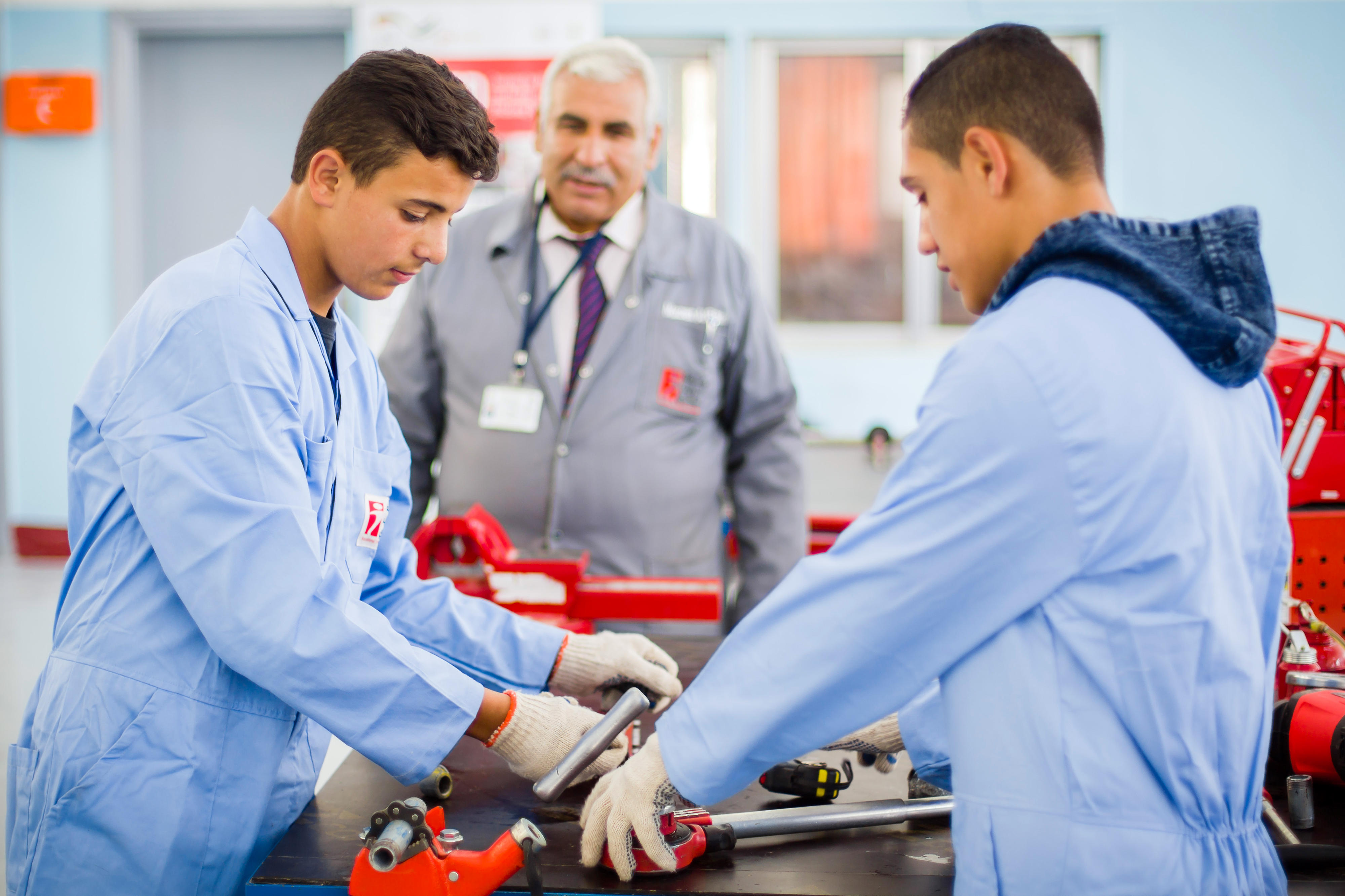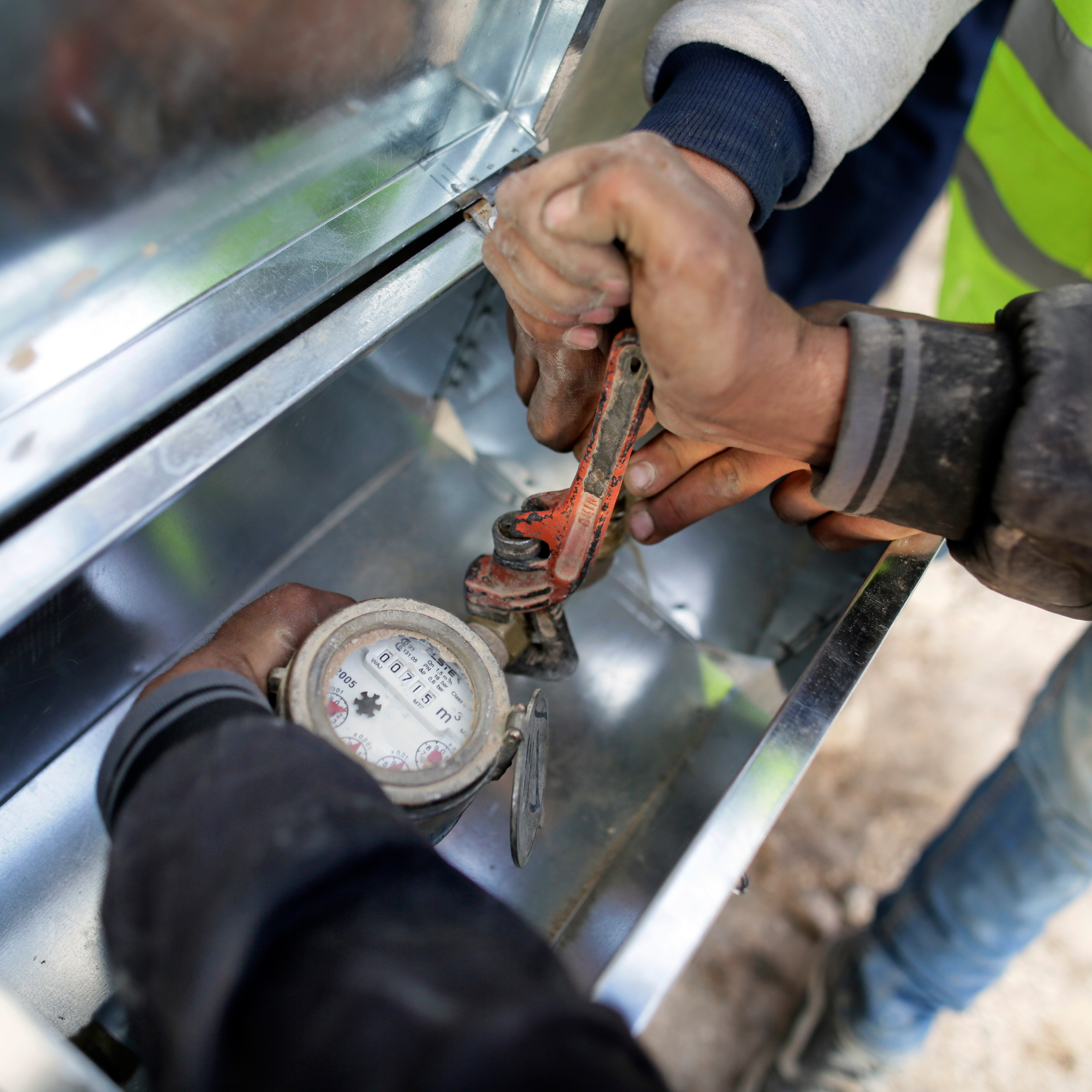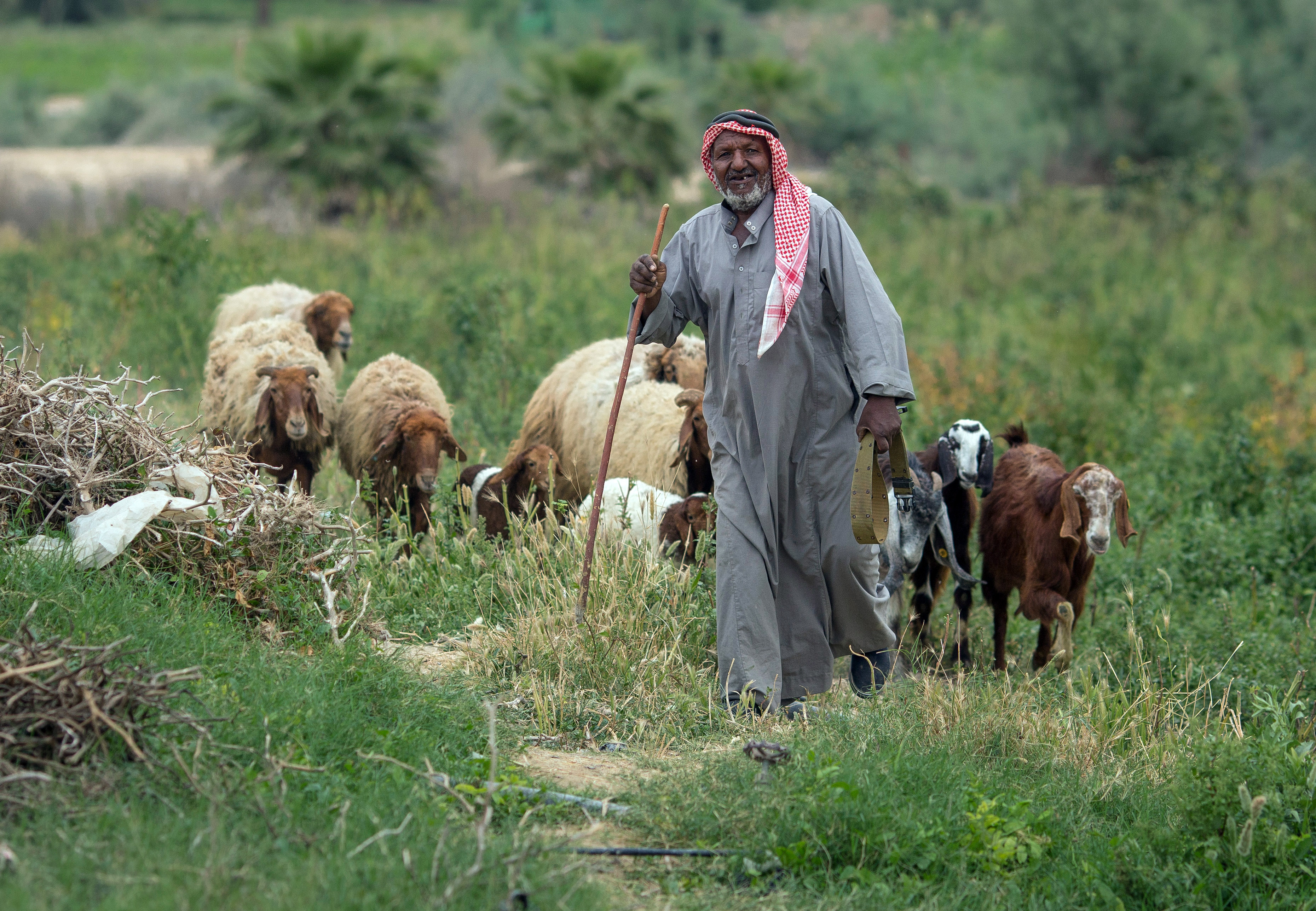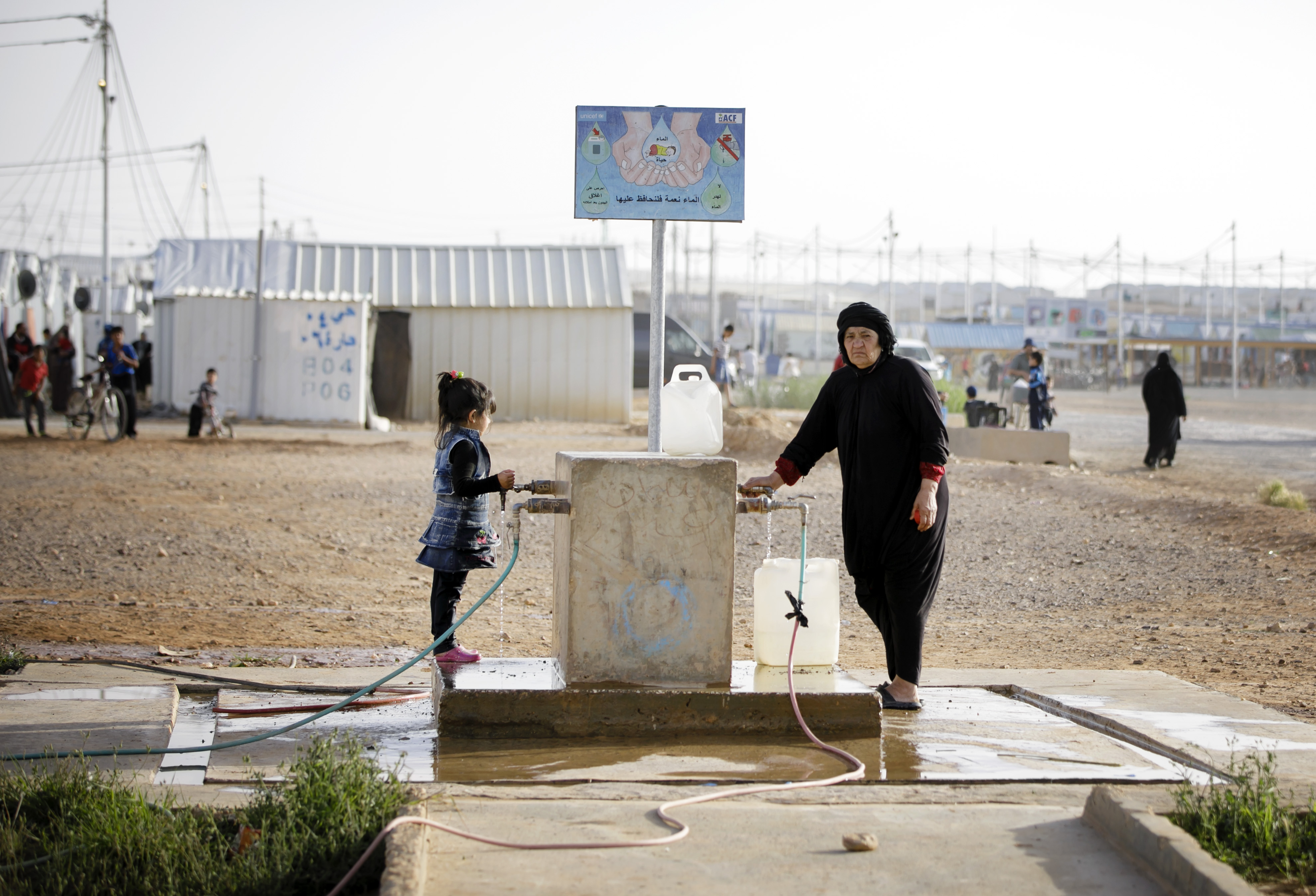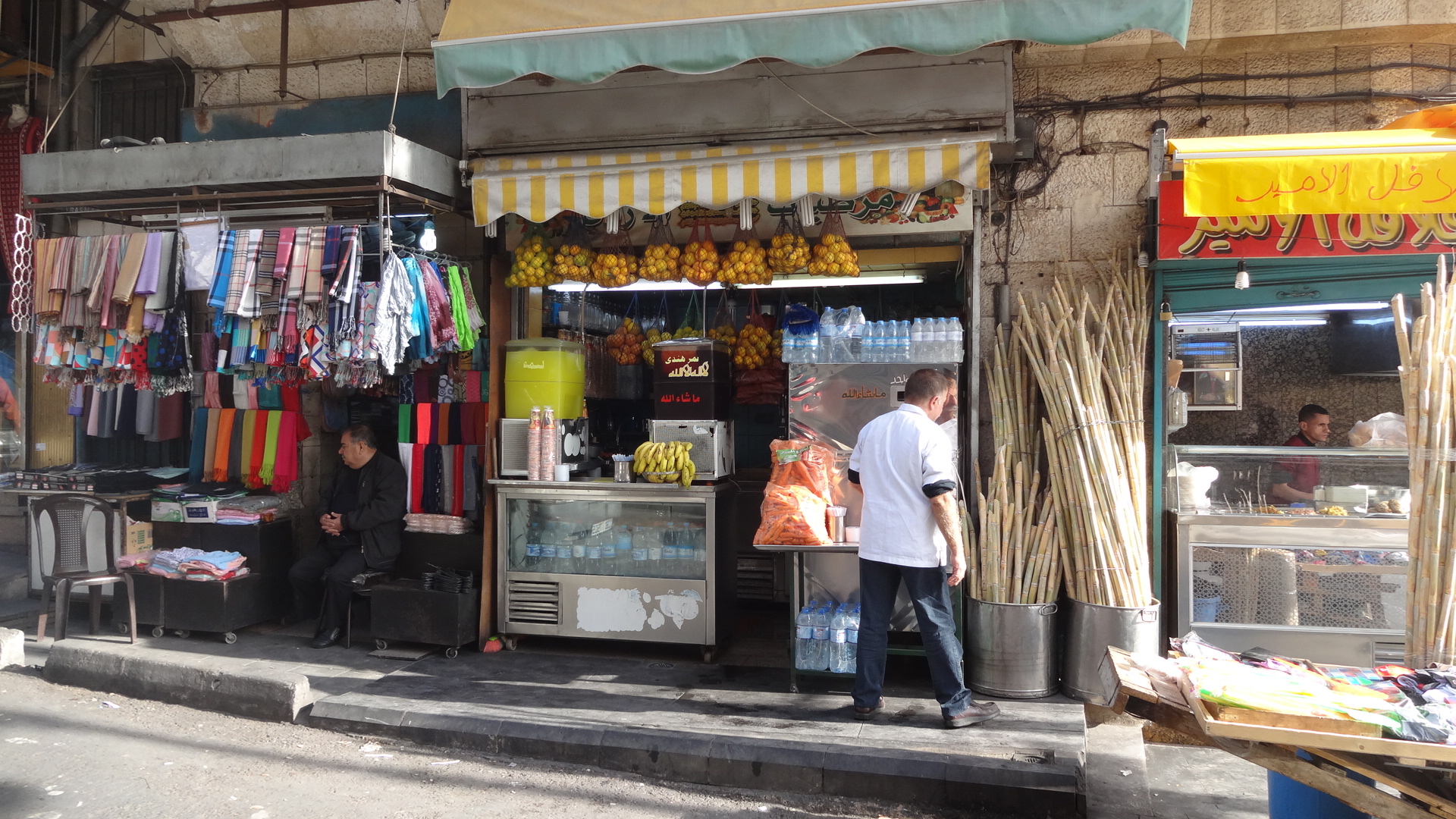View of the Jordanian capital Amman
Copyright© Thomas Trutschel/photothek
Jordan
Jordan is facing great challenges. It is a country with few natural resources and extreme water scarcity, which is exacerbated by the impacts of climate change. The area of agricultural land is limited and the country's industrial sector is not very developed. As a result, many people work in the informal sector and unemployment is high.
Nearly half of Jordan's people are refugees or descendants of refugees. Several million people from Palestine, Iraq and Syria have found refuge in Jordan. As its resources are limited, Jordan requires support from the international community to provide services for the refugees.
In the past few years, Jordan has adopted comprehensive reform objectives. It wants to modernise the economy and foster employment and economic empowerment, especially for women and young people. The government is also planning to reform the political system so that it facilitates more participation by the people, and to improve the performance and citizen responsiveness of government authorities.
Jordan has also adopted ambitious targets for climate change mitigation and adaptation. In particular, it wants to ensure that water, as a vital resource, can be supplied on a long-term basis.
On the current Human Development Index (HDI), Jordan ranks 100th out of the 193 countries listed.
German development cooperation with Jordan
Jordan and Germany have been engaged in development cooperation since 1959. Since that time, the country's population has grown from about 800,000 to over 11 million as a result of the influx of refugees and high birth rates. Jordanian-German development cooperation is geared towards fostering economic development and employment, creating opportunities for refugees and adapting the water and wastewater sector to the consequences of climate change.
Germany has been assisting Jordan in implementing its reform agenda in line with the 2030 Agenda and the Paris Agreement. Government negotiations are held every two years. At the most recent negotiations in May 2024, Germany committed a total of 618.75 million euros for development cooperation in 2024 and 2025.
Bilateral development cooperation focuses on the following core areas:
- Peaceful and inclusive societies
Areas of intervention: displacement and migration, good governance - Sustainable economic development, training and employment
Areas of intervention: technical and vocational education and training, private sector and financial sector development - Conserving nature and natural resources, protecting life on Earth
Area of intervention: water
The next government negotiations with Jordan are planned for 2026.
SDG trends for Jordan
- On track or maintaining SDG achievement
- Moderately improving
- Stagnating
- Decreasing
- Trend information unavailable
